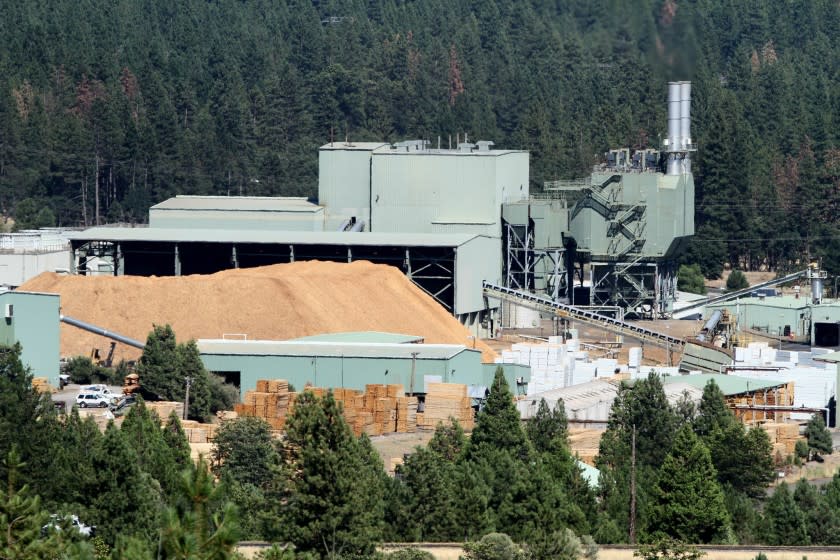Letters to the Editor: Should California burn forest waste to make energy?

To the editor: Cutting down and incinerating trees for electricity has never been carbon neutral, no matter whether it's science-denying congressional Republicans or California policymakers saying so.
It may surprise readers of Tim Searchinger's op-ed article that California routinely ignores carbon pollution from forest bioenergy. Our cap-and-trade program doesn't count greenhouse pollution from bioenergy facilities. The Renewables Portfolio Standard wrongly equates dirty forest bioenergy with zero-carbon solar and wind.
State legislation requires power utilities to buy biomass electricity at exorbitant costs that are passed onto customers, taking resources from truly clean alternatives.
We have no time for false solutions. Forest bioenergy is polluting, inefficient and expensive. It worsens the climate crisis, harms forest ecosystems and damages the health of vulnerable communities where polluting biomass facilities are concentrated.
Forest biomass energy has no place in a just, clean-energy future.
Shaye Wolf, Oakland
The writer is climate science director at the Center for Biological Diversity.
..
To the editor: The opinion piece on burning wood for power is highly misleading in the California context.
The author notes that converting forest waste to energy makes sense, but then focuses on cutting healthy trees for energy production, which is not what occurs in California. On the contrary, state law requires removal of forest waste to reduce wildfire risks and restore healthy forests.
The challenge California faces is what to do with all that forest waste.
According to California's environmental agencies, converting forest or agricultural waste to energy cuts the most harmful climate pollutants by 98% compared to controlled burns or wildfire. That waste can be converted to carbon-negative fuels to replace diesel, cutting pollution even more.
Converting forest waste to energy is critical to meeting the state's climate and air quality goals and should not be confused with the practice in other states of cutting down healthy trees for energy.
Julia Levin, Kensington, Calif.
The writer is executive director of the Bioenergy Assn. of California.
This story originally appeared in Los Angeles Times.

